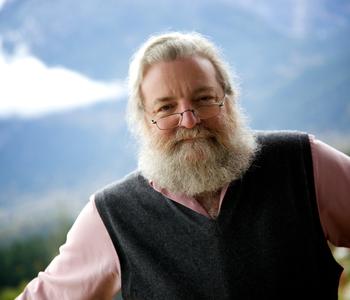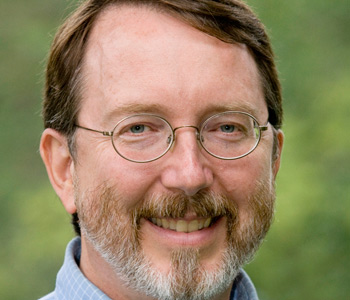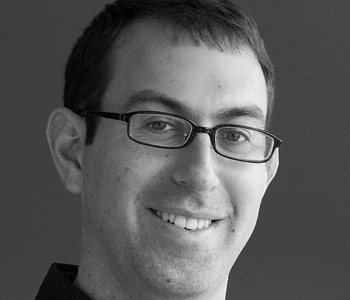Philip Goodchild
Theology of Money
Duke University Press
304 pages, 9 x 6 inches
ISBN 978 0822344506
ISBN 978 0822344384
While the paradigm frequently offered for understanding our society is freedom of the market, the reality of most people’s experience of economic life is one of constraint. Why is this?
It is hard to identify where ‘the market’ is, but it is simple to observe where the transfer of money takes place. We all need money, not only for buying and selling, but for the payment of taxes, rents, wages and interest. Modern money is created by banks when money is loaned in excess of reserves. Money is essentially credit, a belief system, in which we participate in practice so long as we treat money as valuable. This means that money is also debt. Every time we handle money, we handle someone else’s debt or obligation.
Modern money is valuable because someone else is promising to pay, and they are trusted. What are they paying, and to whom? They promise to pay back the loan with interest, and pay it back in the form of money. They promise to acquire money, perhaps through investment, or labour, or the sale of assets, or speculation, to pay off their obligations. So they pay with the obligations of others.
Then modern money is not simply a belief system because we treat paper tokens or sight deposits as valuable – it is also a system of obligations. Economic life is constrained by the perpetual need for acquiring money.
This has enormous implications. Modern economics and politics—and even, to some extent, sociology—are based on the idea of human freedom. And they intend to advise us on the choices that we make. But they are ill-equipped for understanding money because transcendent obligations are put aside from the start, and confined to the sphere of ‘religion’ or ‘superstition.’
This book analyses the ‘theology of money.’ The title is ironic, for the method is philosophical. This is not an account of the history of Christian views on money. The point is to comprehend the way in which money as a supreme value and transcendent obligation shapes the conduct of our lives and institutions. Debt has replaced God as the guarantee for human cooperation, and our modern globalised world is driven by the religion of money.

Debt has replaced God as the guarantee for human cooperation, and our modern globalised world is driven by the religion of money.
I am a philosopher of religion by training, but one shaped by a radical tradition of European philosophy, being influenced especially by Spinoza, Schelling, Kierkegaard, Nietzsche, Bergson, Heidegger, Derrida and Deleuze.
My first two books were on Deleuze, and my previous main work, Capitalism and Religion: The Price of Piety, was an attempt to stage an encounter between philosophy of religion, with its concern for belief in God as a basis for reason, ethics and metaphysics, and critical theory, with its attempt to look behind ideological beliefs to the social, psychological and economic forces and interests that structure thought.
I discovered that just as the social form of empire is intimately related to monotheism, the social form of money is intimately related to the objectivity of truth sought by reason. This is especially true in the modern world where money replaces God as the guarantee of value, the highest good to be sought, and it lends its structural form to the way in which truth is conceived.
Where European philosophers have often sought some decisive term that gives shape to the ways we think and act, such as being, truth, difference, the sublime, the void, time, or even God, it seems to me that money actually plays the decisive role in our society. For money is at once an object that can be handled, an institution which is the basis of all our cooperation, and a structure of thinking. We unwittingly have a theology of money.
I wanted to discover how money actually constrains and structures our evaluations, so I largely put aside ontological considerations. I tried to produce a philosophy of money, with the work of Adam Smith, Karl Marx, and Georg Simmel as my primary exemplars. In each case, I found fundamental disagreements with their approaches, which made extended discussion unfruitful. While I found fellow travelers among environmentalists, feminists, monetary reformers and some exceptional sociologists, my ideal was to produce a pure philosophical treatise, like French philosophy in its classical style. This now forms the central body of the book, Part Two.
Instead of asking what money is, I wanted to understand what effect money has on the process of production and wider society—an ecology of money. I also wanted to understand how money shapes power relations in relation to states and classes—a politics of money. I also wanted to understand what effect money has on its own nature as a record of debts, an accounting practice, which is nothing more than a moral self-discipline for preserving credit—a ‘theology’ of money.
Part One of the book challenges the modern presumption of human freedom and rational mastery over both nature and religion. Freedom is undermined from both sides when the natural order is no longer compliant to our will in the ecological crisis and when human freedom is constrained by money.
Economic forces have priority over political considerations. The modern restructuring of nature and society has always left chaos in its wake, but its hope for finally imposing its own order has also lent it a partial order up until now. While writing the book, I took it for granted that the limits to oil production would lead to inflation, a rise in interest rates, and a collapse in the overheated debt bubble by which the entire global economy is driven—all before most readers would see the book.
I see 2008 as the first shock in the terminal collision between economy and ecology, with a major depression to follow in the coming decade due to an ongoing crisis in energy supply. The hope upon which the modern world is based will soon collapse, and competition for increasingly scarce resources will significantly undermine the moral and political cooperation to which we currently aspire.
Part Three of the book turns towards the fundamental questions of the nature of being, of power, and of credit. Once evaluative questions are merged with ontological questions, and one seeks for a source of truth and value to ground our thought and attention, then these are theological issues.
An implicit agenda of the book is to propose that theology must become a critical engagement with the actual fundamental forces and structures that shape our lives, rather than simply a reflection upon past traditions, or an impotent recommendation of ideals that itself presupposes humanism as the power to realise such ideals. In this respect, a rather tentative proposal for institutional reform of money, banking, credit, and evaluation is part of the new theological agenda.
Capital growth begins with borrowing for investment. For all economic activity is limited by the supply of money: there is always so much more that could be done, if only more money were available. As Samuel Butler put it, “It has been said that the love of money is the root of all evil. The want of money is so quite as truly.”
If money can be created in the form of loans for the purpose of profitable activity, then effective limits to economic growth are removed. There is no shortage of money when it can be replaced by credit, and repaid at a profit. The consequence was nothing less than Karl Polanyi’s “great transformation”: production for the sake of profit rather than use became the dominant motivation for social activity and interaction.
Capitalism, its growth and its globalization, is explained by banking. Economic activity, formerly a limited segment of social life, came to predominate over all other aspects of social life, including religion. The preachers’ declamations against the evils of usury and the love of money were unheeded by those who saw the evidence of prosperity brought about through profit.
Prior to the modern world, the economic sphere was bounded by the finitude of the production of value through human labour, on the one hand, and the finitude of money in circulation, on the other. In the modern world, however, the finitude of production has been partially overcome by harnessing energy stored in fossil fuels and the elements. At the same time, the finitude of currency has been overcome by treating signs of monetary value as themselves valuable, ensuring the value of newly created money by issuing it in the form of loans, attached to debts. Rates of production and rates of interest escape finitude by compound growth. Production for the sake of profit replaces production for the sake of use.
It is easy to observe how such an activity naturally leads to secularization and a direct opposition between God and money. Where God promises eternity, money promises the world. Where God offers a delayed reward, money offers a reward in advance. Where God offers himself as grace, money offers itself as a loan. Where God offers spiritual benefits, money offers tangible benefits. Where God accepts all repentant sinners who truly believe, money may be accepted by all who are willing to trust in its value. Where God requires conversion of the soul, money empowers the existing desires and plans of the soul. Money has the advantages of immediacy, universality, tangibility, and utility. Money promises freedom, and gives a downpayment on such a promise of prosperity.

Theology must become a critical engagement with the actual fundamental forces and structures that shape our lives, rather than simply a reflection upon past traditions. A rather tentative proposal for institutional reform of money, banking, credit, and evaluation is part of the new theological agenda.
This is a prophetic and apocalyptic book, not only in its dire predictions about the immediate future and its pessimism about the demonic hold that debt has over our lives, but also in its attempt to explain and judge the entirety of modern life.
No one can remain neutral in regard to the book’s central thesis. So I expect it to be deeply divisive at best, or else regarded with such scandal and outrage that it must be denounced, marginalised or ignored.
The book calls into question an entire modern worldview shared by religious and non-religious alike. It does, however, give an explanation for the perverted balance of priorities in our society that many ordinary people feel deeply uneasy about.
My hope is that it will be a provocation for thinking, and that it may set up the terms of the problem so that new institutions can be devised that liberate human evaluation and cooperation from the constraints of debt money in a future era of our civilisation.




We don't put paywalls. We don't distract you with ads. We don't sell your data.
Please help to keep this running!